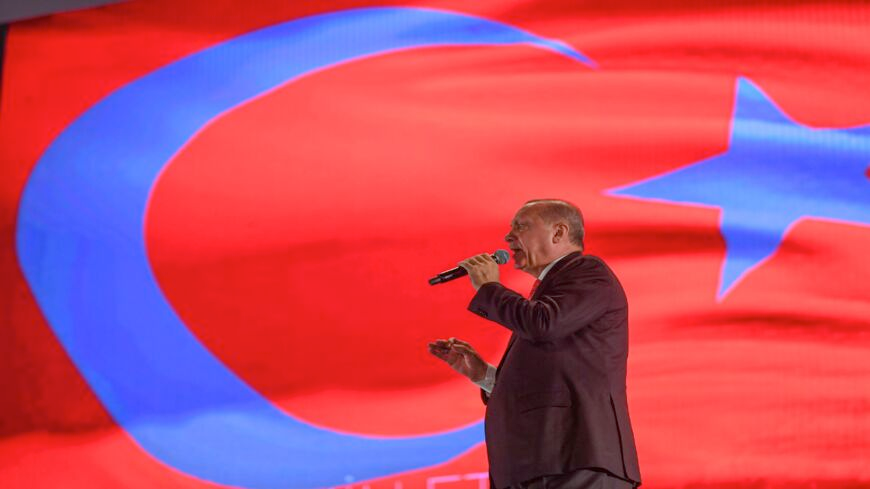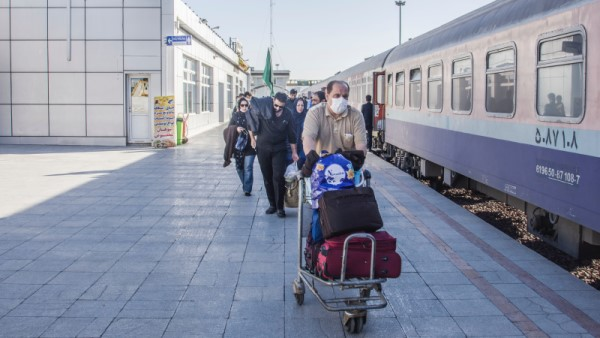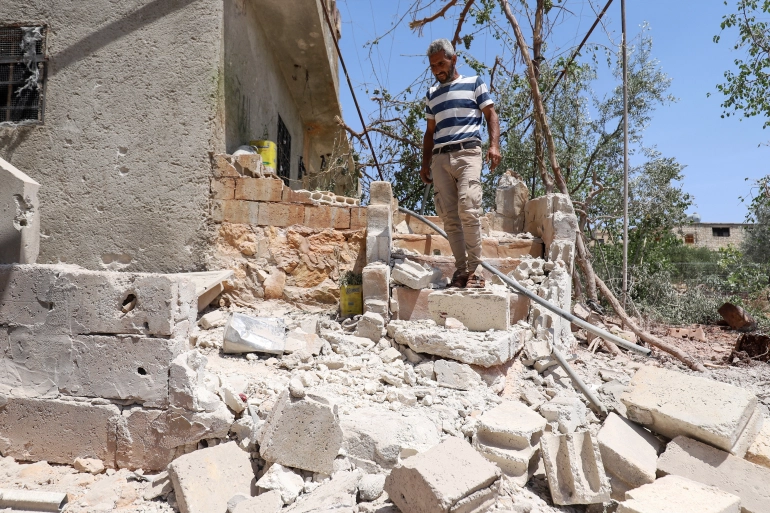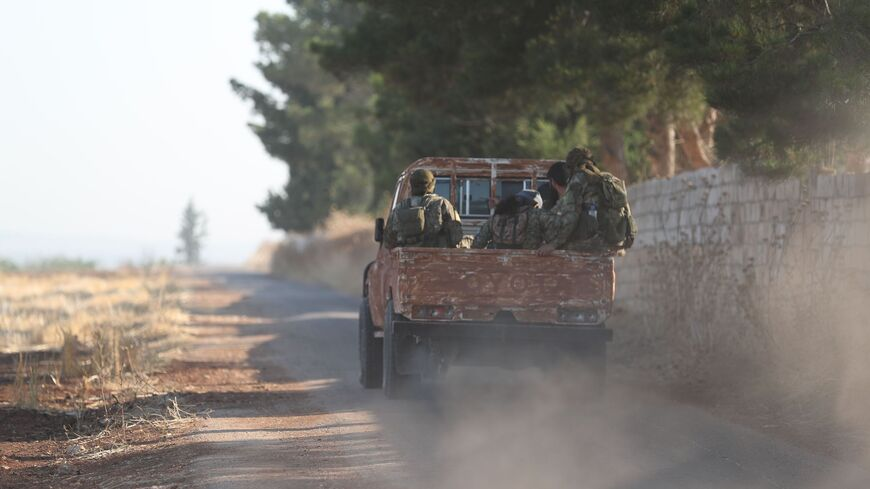Syrian jihadi groups crack down on rivals in Idlib
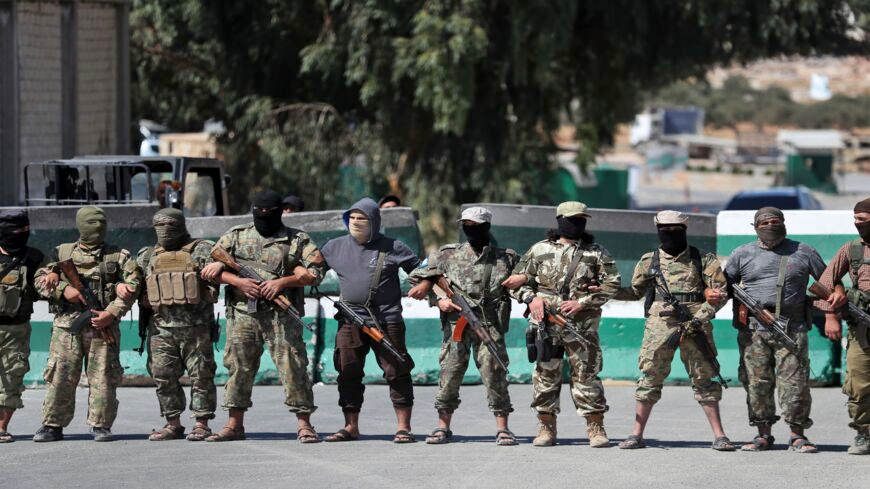
Hayat Tahrir al-Sham is tightening the noose on the jihadi Jundallah group and asking it to join it or leave Idlib, in what observers described as an attempt on the part of HTS to get rid of non-Syrian fighters.
Hayat Tahrir al-Sham (HTS), which controls Syria’s northwestern province of Idlib, has recently worked to attract jihadi groups acting outside the limits of its authority by placing pressure on them and offering them as few as two options: either join the organization and act under its authority or dissolve themselves and leave Idlib.

